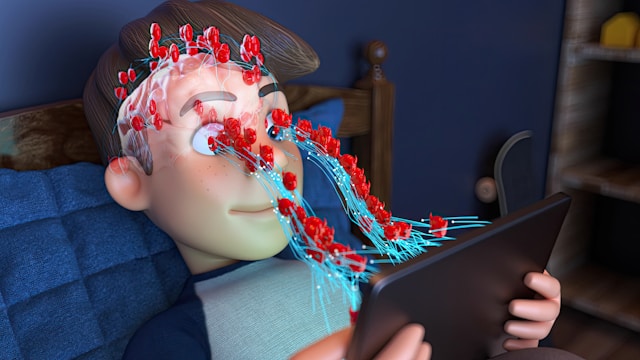Is ChatGPT Hindering Young Minds? New Research Raises Concerns
3 minute readPublished by BNN

A recent study from MIT suggests that ChatGPT might be undermining young people's cognitive development - particularly in how they think, remember, and generate ideas.
In a series of essay-writing experiments, researchers observed college students using different tools to complete SAT-style writing tasks. That study found that those who relied on ChatGPT exhibited lower brain activity, weaker memory retention, and reduced creativity. And the more they used it, the more dependent they became.
The Experiment
20 college students were split into three groups:
- One wrote essays using only their own knowledge.
- One used Google Search.
- One used ChatGPT.
Throughout 3 writing sessions, participants were monitored using EEG brain scans. By the final session, the differences between groups were stark:
- ChatGPT users increasingly copied and pasted prompts, made only minor edits, and spent much less time actually writing.
- Their brain activity declined, especially in areas linked to attention, memory, and creative thinking.
- Their essays sounded generic and indistinct, with teachers describing them as "soulless."
- Most struggled to remember what they had written when asked to revise it.
In contrast, the "brain-only" group remained deeply engaged. EEG scans showed strong activity in areas responsible for language and idea formation. These students also felt a stronger connection to their work. Even the Google Search group demonstrated sustained cognitive involvement, as they still had to search, evaluate, and synthesize information on their own.
A Concerning Trend
The most troubling finding, according to researchers, was how quickly students using ChatGPT stopped thinking independently. Activity in the prefrontal cortex - the brain's hub for complex reasoning — dropped significantly. Once students began outsourcing their thinking, they rarely re-engaged.
This research comes at a time when schools are racing to adopt AI tools like ChatGPT, often without a full understanding of how these tools may impact developing brains.
More Than Just a Shortcut
There’s no doubt AI has potential in education - offering faster writing, customized help, and instant feedback. But the study warns of a deeper risk: when students skip the struggle of thinking through problems, they miss out on the process that builds critical thinking and long-term learning.
The concern isn't that students are using AI. It's that they're using it before they've developed the foundational cognitive skills to think independently, retain knowledge, and create new ideas. These abilities require effort and repetition - the very things AI shortcuts.
Without that mental friction, growth stalls. The brain strengthens through effort, not ease. If young people consistently rely on AI to do their thinking, they may never build the resilience and reasoning skills that traditional learning was designed to foster.